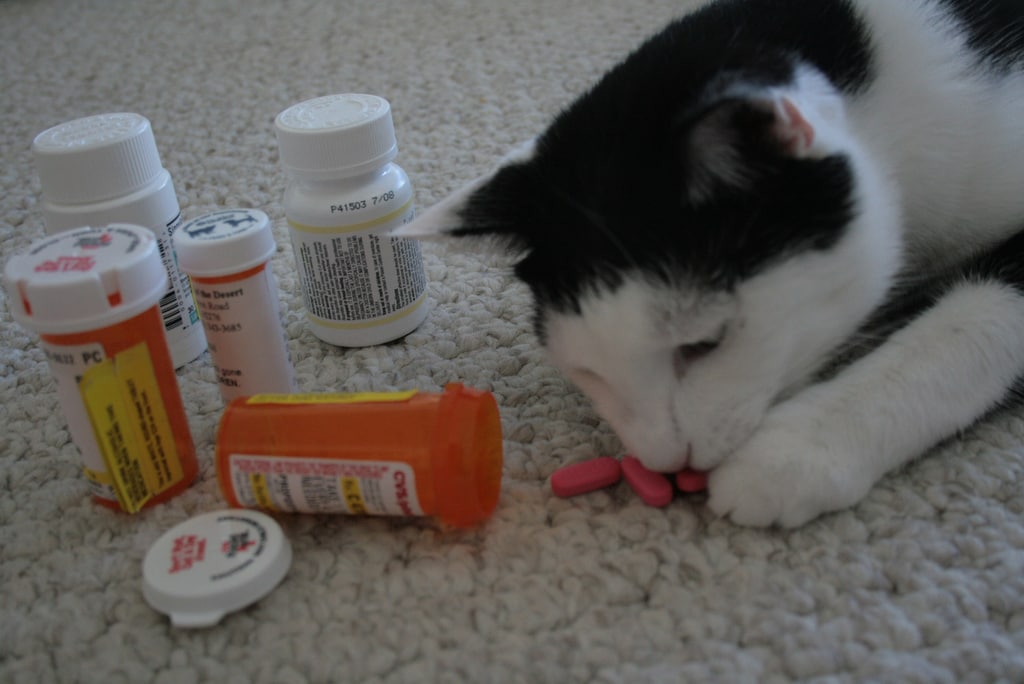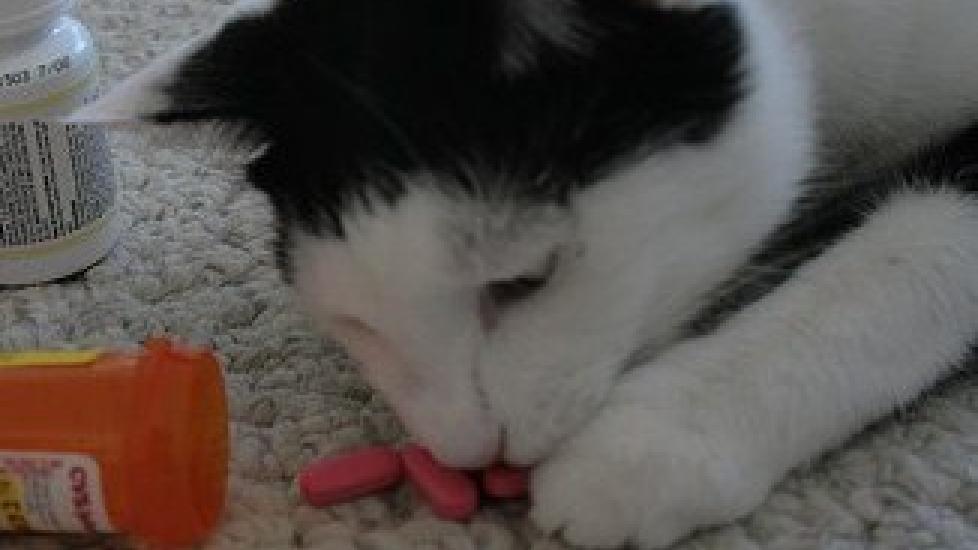How Good is That 'Expired' Drug in Your Pet's Medicine Cabinet?
Yesterday's Morning Edition on NPR featured Joanne Silberner's report on human drugs and their expiration dates. Though I'd never heard of this law, it seems pharmacists are required to attach a one-year expiration date to all of the drugs they dispense.
And — get this — they're legally enjoined to do so regardless of the manufacturer's expiration dates. Which means the same is true for veterinarians, seeing as we're required to comply with pharmacy laws, too.
Apart from feeling pretty stupid for not knowing of this basic law (it's an FDA regulation), I had this immediate, visceral reaction to this information: That's just wrong! After all, the drug manufacturers are required to test the safety and efficacy of their drugs under warm, humid environments (read: bathroom) for years beyond their manufacturing date. So why then does the FDA feel justified in placing limits where they previously did not exist?
Here's what the pharmacy profession (staunch supporter of the regulation) argues: Because we don't test drugs at the time of dispensing, we don't know whether they're still as good as the manufacturers say they are. Read between the lines: We don't want to be legally responsible. Read between the lines some more: Limiting the expiration date is an easily defensible way to encourage more drug sales.
But if you're like me, you look up the manufacturer's expiration dates and you follow those instead of the pharmacy's. For myself and my own family, that is. Turns out that my veterinary hospital employer follows the pharmacy rules. The expiration date is always one year out unless the manufacturer's expiration date precedes it. This being the law and all that. (Good thing I'm not in charge, seeing as I'm occasionally ignorant of basic rules.)
But it's not fair! you might argue. It's not exactly consumer friendly to arbitrarily set higher bars on some products — especially when they are so transparently yielding bigger bottom lines for those who lobby in their favor. Fishy smelling, right? I think so, anyway.
Which is why I took a look at a local hospital's Rx labels (from a patient who had been transferred that morning). I'd recalled they were even more restrictive than a year. Turns out I was right. And an employee who'd worked at yet another hospital reported the same about her previous employer's policy.
Why? For two reasons, the former employee explained: 1. Because people probably store animal medications even more carelessly than their own, and 2. Because this way people are less likely to stop their drugs and start them up again whenever they please.
OK, so I'll concede to the second point. But then, there are plenty of times I'll ask an owner to stop a med and start it again. So why make them come in again for a "fresh" round? That's wasteful! It's wrong! And it's not consumer friendly.
So what do I recommend YOU to do? I recommend that you follow your veterinarian's instructions. But I also recommend that you ask for the manufacturer's expiration date on meds that might need to be administered again in the future. Why waste?
Still, there's one caveat. As the NPR report finally concluded, there's no need to trifle with meds that potentially offer immediate, life-saving benefits. Epi-pens (epinephrine injections for anaphylaxis), for example. But then, I've only ever prescribed Epi-pens for three patients. Yep. Sometimes I think the pharmacy industry protests too much on their own behalf. That's my take, anyway. You're free to offer your own below.

Dr. Patty Khuly
Pic of the day: "Messed up" by maggiejumps

